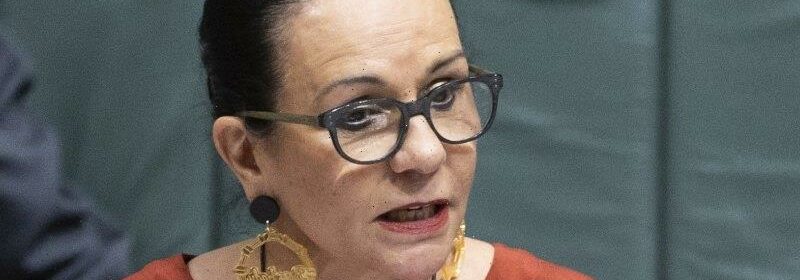‘No one know’s what’s going on’: Voice supporters query referendum strategy

Key supporters of the Indigenous Voice referendum want the wording of the proposed constitutional amendment scrutinised by parliament, as debate over the scope of the body threatens to divide the Yes camp.
Minister for Indigenous Australians Linda Burney has set up a working group of 22 Indigenous leaders to help shape the referendum plan, with one of its key tasks to refine the question that would be put to voters and the proposed constitutional amendment.
Minister for Indigenous Australians Linda Burney has foreshadowed a broader consultation process on the Voice will be announced in coming weeks.Credit:Alex Ellinghausen
But it remains unclear how the working group, which will meet formally for the first time at the end of the month, will seek to achieve this.
There is also growing disquiet among some supporters that not enough is being done to address criticism of the Voice’s scope to ensure the final amendment is capable of securing widespread support.
Constitutional law expert Greg Craven, a director of Uphold & Recognise, an organisation seeking to build support for the Voice in conservative circles, said the government’s referendum strategy was opaque.
“The fundamental problem is that no one knows what’s going on except a relatively small group of privileged people. Parliament’s not involved. At the moment, the opposition isn’t involved. Wider consultation isn’t involved,” Craven said.
He said there was a “huge argument” looming over the Voice’s remit and consensus could only be built by thoroughly stress-testing the draft amendment recently proposed by Prime Minister Anthony Albanese.
Craven’s views are echoed by a number of supporters of constitutional recognition who conceded privately they were growing increasingly worried by the lack of a clear strategy but were unwilling to go public at this stage.
Both Jesuit lawyer Frank Brennan, who has long campaigned for Indigenous advancement, and Liberal senator and Voice supporter Andrew Bragg said a genuine consultation process must involve a parliamentary inquiry.
“The proposed wording has got to be put through a rigorous parliamentary process, which would be a parliamentary committee where anybody and everybody could have their say, but which would then be aimed at building a broad consensus within the parliament to own that set of words,” Brennan said.
At the Garma festival in July, Albanese outlined a proposed draft amendment to the Constitution, which said in part the Voice “may make representations to parliament and the executive government” on matters relating to Indigenous Australians.
Brennan believes Albanese’s draft wording is too broad and has proposed a narrower amendment that would limit the Voice’s advisory role to special legislation concerning Indigenous people, such as native title or alcohol bans, which he believes is more likely to garner support from conservatives.
Burney declined to comment on whether the government intended to hold a parliamentary inquiry, saying in a statement to this masthead the attorney-general would have more to say about the government’s examination of constitutional matters as part of this process in the coming weeks.
UNSW professor Megan Davis – one of the architects of the Uluru statement and a member of the working group – is leading a separate consultation process on the draft amendment through UNSW’s Indigenous Law Centre (ILC) that will seek the views of lawyers with expertise in constitutional and public law and Indigenous legal issues.
The proposed amendment put forward by Albanese was modelled on the wording suggested by Davis, ILC members and other Indigenous leaders in a 2018 submission to a federal parliamentary inquiry on constitutional recognition.
Davis said the ILC consultations were aligned with the Voice working group, “not in conflict with it”, and would result in a report to both government and the group “to inform the government’s work in delivering a constitutionally sound amendment”.
But Craven said the UNSW-led consultation process was “hugely problematic” because it was being conducted by those who had a stake in the wording of the draft amendment.
“It is a completely pointless exercise that has no intellectual credibility. What is occurring is the architects of the current words are assessing whether those words are right,” he said.
One member of the Voice working group, who requested anonymity to speak frankly, said there was a “potential for complications” if the group was not seen to be speaking with a united voice.
“I think [Davis] has a belief that her set of words are the best set of words. There’s a potential for complications because we need a united voice because we risk giving the naysayers the wedge to destroy this incredible opportunity,” they said.
Davis said the consultations would canvass a number of possible draft amendments, including updated wording proposed by the ILC, which was committed to “a robust provision to put to the Australian people, not to a particular form of words”.
Cut through the noise of federal politics with news, views and expert analysis from Jacqueline Maley. Subscribers can sign up to our weekly Inside Politics newsletter here.
Most Viewed in Politics
From our partners
Source: Read Full Article
